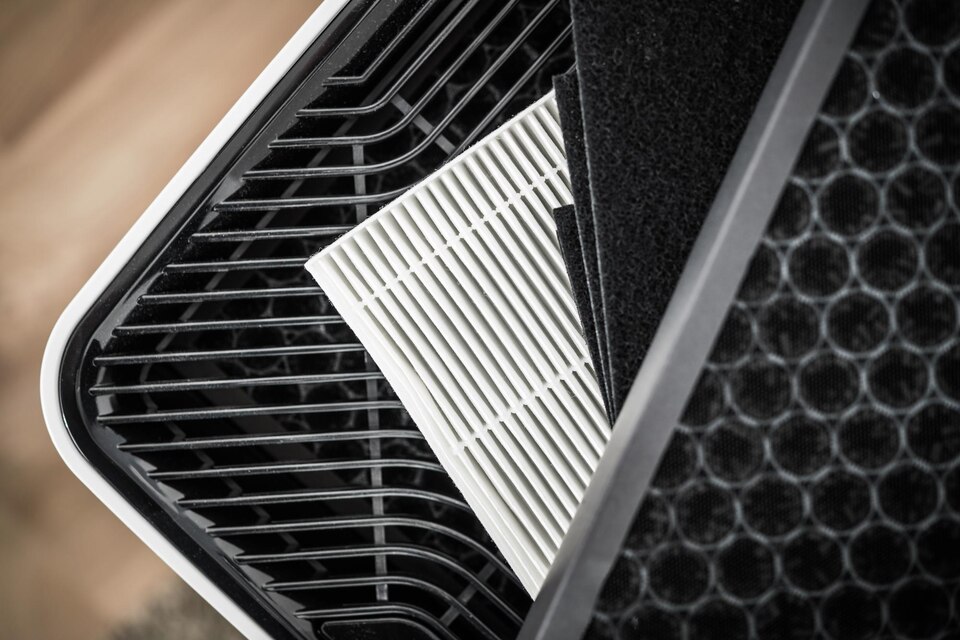Replace Air Filters for Optimal HVAC Performance
Air filters play a critical role in maintaining the efficiency and performance of your HVAC system. Regularly replacing them ensures good indoor air quality and optimal system operation. However, knowing precisely when to change air filters can be challenging, as several factors affect their lifespan.
Understanding these factors is essential for keeping your HVAC system in top shape. Recognizing the signs of a filter needing replacement helps avoid potential issues such as increased energy costs and poor air circulation. By maintaining a regular replacement schedule, you ensure your system works efficiently year-round.
Investing time in learning about air filter maintenance can prevent costly repairs and improve your home’s comfort. Making informed decisions on when and how often to replace your air filters is an important step towards achieving this goal.
Understanding the Importance of Air Filter Replacement
Air filters are vital to the efficient operation of your HVAC system. They capture dust, pollen, and other particles, preventing them from circulating in your home. This process not only improves indoor air quality but also protects the HVAC components from accumulating debris. A clean air filter enables your system to run efficiently, reducing energy consumption and prolonging the lifespan of the unit.
Neglecting air filter maintenance can lead to several risks. A clogged filter forces the HVAC system to work harder to push air through, resulting in increased energy usage and higher utility bills. Moreover, a restricted airflow can cause the system to overheat, leading to potentially costly breakdowns or repairs. Dust and debris-laden filters can compromise indoor air quality, exacerbating allergies and respiratory issues. By regularly replacing air filters, you mitigate these risks, ensuring an efficient and healthy living environment.
Factors Affecting Air Filter Replacement Frequency
Various factors determine how often you should replace your air filters. The type of filter you use is a primary consideration. HEPA filters, known for their high-efficiency particle removal, might require more frequent changes compared to standard fiberglass filters. Pleated filters offer a middle ground, with relatively longer lifespans and better filtration.
Your home’s environment also affects filter replacement frequency. Pet owners may need to replace filters more often due to animal hair and dander. Similarly, homes with occupants suffering from allergies or respiratory conditions might benefit from more frequent changes to ensure optimal air quality.
Seasonal variations play a role in filter longevity as well. During pollen-heavy seasons like spring, filters can clog faster, while in the fall, debris and dust accumulation may increase. It’s essential to monitor filter condition during these times to maintain efficient HVAC operation. Taking these factors into account helps you establish a replacement schedule that keeps your system running smoothly and your home environment healthy.
Recognizing Signs It’s Time to Replace Your Air Filters
Identifying when your air filters need replacement is crucial for maintaining HVAC efficiency. One noticeable sign is poor system performance. If your system struggles to maintain a consistent temperature or if airflow seems restricted, a clogged filter could be the culprit. Increased allergy symptoms among household members can also indicate that filters are no longer effective in capturing pollutants.
Visual inspections of your filters can reveal wear and damage. Darkened or dirty filters suggest that they are overloaded with particles and need changing. Ignoring these signs can lead to more severe consequences, such as increased strain on the system, resulting in component failures or the need for repairs. Prioritizing regular checks can prevent these outcomes and ensure smoother system operation.
Best Practices for Maintaining Optimal Air Filter Performance
Adopting best practices for maintaining your air filters can enhance HVAC performance. A structured schedule for checking and replacing filters helps ensure they always function at their best. For most households, checking the filters every three months is typically sufficient, but more frequent checks might be necessary if you have pets or allergy sufferers.
Clean filters play a significant role in maintaining good indoor air quality by trapping dust, pollen, and other airborne particles. To complement your filter maintenance, consider professional air duct cleaning. Dust and debris within ductwork can circulate in your home, affecting air quality. Regular HVAC maintenance, including airflow checks and system inspections by our professionals, also helps maintain efficiency and prolongs the life of your system.
Conclusion
Proper air filter maintenance is essential in keeping your HVAC system performing effectively and ensuring healthy indoor air quality. By understanding when and how often to replace filters—considering household conditions, types of filters, and seasonal changes—homeowners can avoid the pitfalls of neglect, such as higher energy bills and poor air quality. Recognizing signs that new filters are needed helps you act promptly, preventing more significant issues down the line.
For optimal performance, adhering to a regular maintenance schedule and combining this with professional services like those offered by Infinity Texas Air can make a difference in your HVAC system’s efficiency and longevity.
If you’re unsure about your air filter maintenance needs, or if you’re experiencing issues with your HVAC system, reach out to us. Our team of experienced professionals can assess your situation and provide tailored solutions to keep your system running smoothly. Don’t wait until minor issues become costly repairs—contact us today to schedule an air filter replacement in Rockwall, TX. Ensure your home remains comfortable and energy-efficient.




